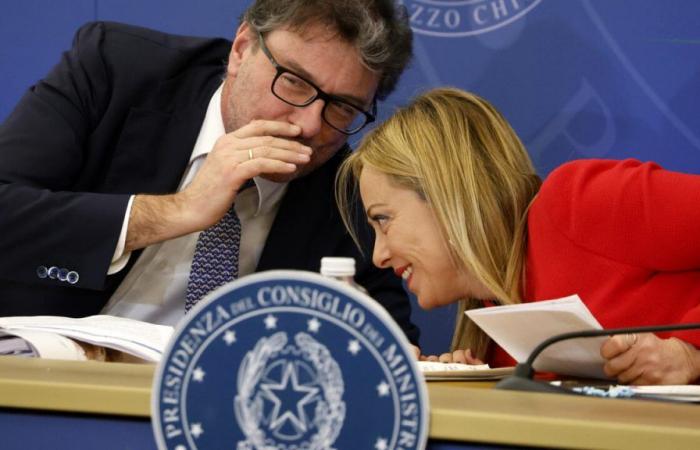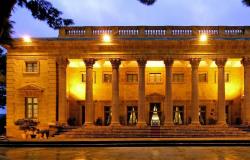“What seems improper for a member of the (European) Union is that after having made a commitment to ratify, when it comes time to sign it backs down.” It was last December 23rd, and so the Minister of Economy Giancarlo Giorgetti had stigmatized the rejection by the majority (of which he is part) of the ratification of the ESM, the European stability mechanism or state-saving fund, if you prefer. Exactly six months have passed since then, but this time it was Giorgetti himself who blocked the ratification in the bud: “Parliament is not in a position to approve it (the ESM, ed.) and does not approve it”, he said on the sidelines of the Council Ecofin in Luxembourg, explaining that the text should be changed again. Except to then add that, at the basis of the (new) Italian ‘no’, formalized on Thursday at the meeting of Eurogroup ministers, there is also another motivation: the treatment that the main EU leaders reserved for Meloni during the summit on Monday on the appointments of the new Commission.
Which of the two reasons is the more important one is difficult to understand. Pressed by journalists, the minister first argued his opposition by listing technical reasons: “In the short term it is not possible” to ratify the ESM, but “in the long term it depends on whether it changes, whether it improves, whether it changes its nature as we have always asked”. In reality, Giorgetti had said more than once that he was “in favor” of the definitive green light for the new state-saving fund as it was reformed after long and exhausting negotiations between the various Italian governments that followed before the Meloni one, and the rest of the EU. Last June, the same minister had sent to the Chamber the opinion of the head of cabinet of the Ministry of Economy, according to which the reform would not increase Italy’s debt and exposure on the markets, some of the criticisms leveled by the right against the ESM . A position, that of Giorgetti, which was fully in line with the prime minister’s strategy to gain credibility in Europe as a credible and reliable leader. What has changed now?
Continuing along the lines of technical reasoning, there would be the possibility of reforming the ESM so that it can be used to cover defense expenses. The topic would have emerged at the Eurogroup, at which the director of the fund, Pierre Gramegna, was also present: “For the first time Gramegna made some reflections, evidently also taking into account the criticisms (on the ESM, ed.) that we have always made in order to try to change it and bring it towards a use such as a European sovereign fund, for example in terms of defence, perhaps preventing individual national states from having to go into debt or spend at a national level”, said Giorgetti.
It is not the first time that the Meloni government has sent the ESM ball back to the stands (the start of which depends on the last remaining ratification, the Italian one). In the midst of the controversy last June, when Giorgetti had tried to pass the approval in the Chamber, several members of the majority had explained that, before ratification, Italy wanted guarantees on the reform of the Stability Pact, then on the new laws on immigration, and finally on the review of the EU budget. All dossiers that were also launched with the vote of Rome. With the European elections behind us, the game seemed closed. Instead, here’s the new twist.
What is the ESM and what does the reform provide
Pulled by the jacket by reporters, Giorgetti himself would have let slip the real reason for the about-face: “Introducing the topic of the ratification of the treaty of the European Stability Mechanism at this moment seems to me to be vaguely throwing salt on the wound, improper”, he said the minister. The “moment” is what happened on Monday at the informal summit in Brussels, when Meloni was marginalized by the heads of state and government of the EU majority, from Emmanuel Macron to Olaf Scholz, in the negotiations on top positions. More than economic, therefore, the issue is political. And it tastes like a lot of spite. We will see next week at the new EU summit on appointments whether the ESM weapon will have helped Meloni obtain the respect that, evidently, she lacked a few days earlier.






